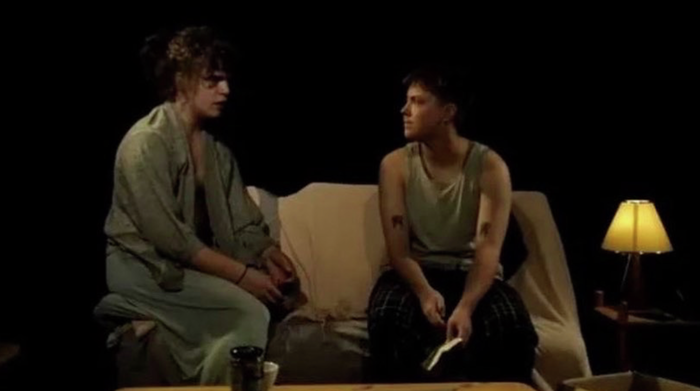The Two Popes review: immersive and entertaining but let down by an unsatisfying ending
James Dacre’s production displays the Catholic Church very realistically but doesn’t do so well in delving into what it represents

Popes do not resign. Or at least they didn’t, for 700 years, until 11th February 2013. James Dacre's production of The Two Popes, currently showing at Cambridge Arts Theatre, covers what might have prompted someone to shatter such a venerable tradition, and the mysteries behind the troubled man who did. The play offers a glimpse into the tradition, history, and performativity of the Catholic Church: it covers both religious frustrations while also showcasing two popes enjoying the mundanity of life, indulging in good wine and good music.
Dacre’s rendition is one of humour, dry wit, and glimmerings of sincerity. He captures the contradictory nature of Pope Benedict XVI, painting him at once as an ultra-traditionalist, burdened by his obligations to the custom of the Catholic Church, yet capable of orchestrating a most untraditional exit from the highest office. It is these contradictions that make for an extremely provocative viewing experience. However, while trying to personalise one of the world’s most secretive and complex institutions, it ultimately falls apart under the weight of its own promise.
Highly accurate religious costuming meant the history of the Catholic Church was palpable
The play is indeed successful in its trappings. Original music composed by Grammy and Brit winner Anne Dudley cultivated a rich soundscape in which prayer hymns were at once mixed with the likes of ABBA’s Dancing Queen, meaning it was never quite possible to predict what was to come next. Coupled with Jonathan Fensom’s relatively simple but versatile set, the audience was transported to the Sistine Chapel and the Vatican. Projections of Michelangelo’s fresco onto stone pillars within the theatre at times created an intimidating and otherworldly atmosphere, particularly as Lesser and Woodeson were staged as solitary figures in the midst of the extraordinary architecture.
The snuffing out of live flames and the extravagant and highly accurate religious costuming meant the history of the Catholic Church was palpable. Dust and smoke continuously circled around the stage, engulfing the theatre in traces of time gone by.
Anton Lesser as Pope Benedict XVI and Nicholas Woodeson as Pope Francis represented two men plagued with internal spiritual crises. Lesser and Woodeson complemented one another, displaying the awkward but endearing relationship shared between Pope Benedict and Pope Francis. The pair drew hordes of laughter from the crowd at the conclusion of prayers while also inviting pity towards Benedict and Francis’ respective struggles.
However, the difficulty with using humour as a lens to frame heavy discussions is that it often fails to do justice to the topic matters. This was unfortunately the case here. The establishment of binaries, particularly between the German Pope Benedict – a man of great intellect and austerity – and the Argentinian Pope Francis – an extrovert and non-conformist – initially served Dacre’s purpose in navigating the complicated and messy past of the Catholic Church. But the problem with binaries is they quickly become predictable and very rarely display the complexity of truth.
The somewhat superficial attempts to answer the very question posited from the beginning of the play – the explicit reasons as to why Pope Benedict XVI resigned – was an unsatisfying conclusion. At times, it felt as if Lesser only began to scrape the surface of why his character behaved in the way he did, offering vague justifications for his religious conundrum.
Similarly, brief mentions of child sexual abuse within the Catholic Church felt unexplored as they were introduced following moments of intense comedy and left relatively uninterrogated. At times it felt as if the characters were too much of a caricature. Their over-stylised accents became somewhat distracting from the rest of the production.
Dacre’s ‘The Two Popes’ attempts to grapple with complex religious baggage in a comedic and often light-hearted way. This undoubtedly made for interesting viewing. But it failed to strike the balance between comedy and the harshness of reality in a meaningful way.
The Two Popes is showing at Cambridge Arts Theatre between 27/09-01-10
 Features / Cloudbusting: happy 10th birthday to the building you’ve never heard of30 March 2025
Features / Cloudbusting: happy 10th birthday to the building you’ve never heard of30 March 2025 News / Uni offers AI course for Lloyds employees30 March 2025
News / Uni offers AI course for Lloyds employees30 March 2025 News / Caius clock hand returned nearly 100 years after student prank31 March 2025
News / Caius clock hand returned nearly 100 years after student prank31 March 2025 News / Ski mask-wearing teens break into Caius accommodation27 March 2025
News / Ski mask-wearing teens break into Caius accommodation27 March 2025 News / Write for Varsity this Easter31 March 2025
News / Write for Varsity this Easter31 March 2025






